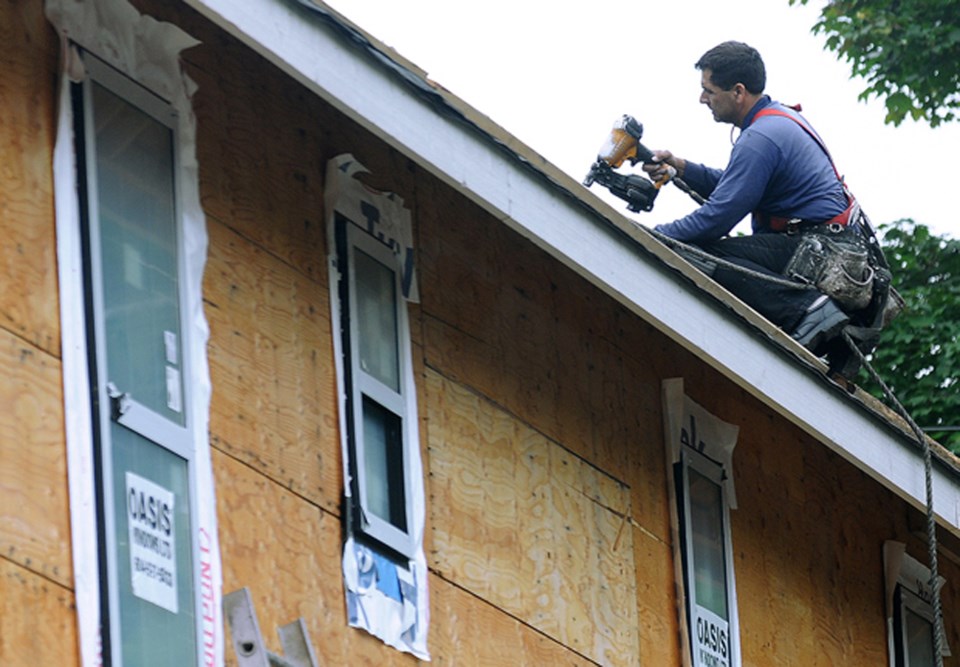Unintended consequences can be an unfortunate upshot of decision-making. What you thought was a positive move might create a problem you didn’t foresee.
Take, for instance, West Vancouver council’s decision last year to follow through on home design and construction recommendations from the district Neighbourhood Character Working Group.
What was devised with best intentions to act upon the advisory body’s work to refine a range of housing bylaws also prompted a protracted, unplanned problem. In providing the community six months to digest and adapt to the new rules, council instead provoked a stampede to beat the punch.
The grace period was hardly graceful. A deluge of plans and proposals overwhelmed staff.
What had been 40 homebuilding permit applications per month in the previous three years turned into 82 in November, 129 in December and 209 in January before the bylaw took effect at month’s end. It was 10-and-a-half months of activity shoved into three months. Many months later, West Vancouver is still quite deep in the hole.
Here we are in late August and the district still hasn’t dealt with 35 new single-family home applications filed way back in the last week of January. All told, there are 79 new home applications in the queue.
What had been an eight- to 12-week period to review a single-family home permit has turned into a gangly 24 to 29 weeks. Permit applications for renovations and additions, many of them fairly simple in nature when you review the data, are taking 12 to 16 weeks. The district says it might be the spring of 2023 before there is a return to the typical review durations.
In many ways these delays couldn’t have struck the community at a more inopportune time. What had been a fairly orderly system in somewhat stable industry conditions for eons – remember near-free borrowing? – has turned into a gnarled, volatile economy of supply-chain breakdowns, labour unavailability and construction-related inflation higher than even the high-single-digit inflation others of us are experiencing.
And time is money. The inundation has been anything but inexpensive.
Even though many district staff worked evenings and weekends to sort out the easier and tougher plans and ease the congestion, homeowners and developers have assumed hundreds, thousands and even tens of thousands of dollars in additional costs in contending with a clogged artery at municipal hall.
It has issued 55 single-family home permits and reviewed 115 since the change, which means more than half of the applications needed more information. Unsurprisingly, some chose to abandon their plans in recent months, which somewhat inflates the backlog statistics.
I suspect the most frustrating of these delays would be to find yourself in the logjam with a low-impact, low-cost renovation. I had a look – a quite tedious look, let me tell you – at the applications and approvals in the months before and after the changes, and there were loads of three- and four-figure renos that in this triage could have been granted the benefit of the doubt without an ensuing calamity.
And, if I might be granted an opportunity to play 20-20 hindsight, here is where council had an opportunity to think steps ahead, more like a chess than a checkers player. It could have sanctioned some sort of commonsensical exemption for projects of a certain size by certain contractors or tradespeople – companies and names familiar to the district that could be placed on an accredited list. Yes, still subject them to inspections, strike them off the list if they deliver substandard work, but meantime let them proceed with the more modest renovations. Focus staff on the bigger projects with more funds at stake and the complex bylaw to abide.
This is a time when all governments ought to be entering an era of frugality and of placing guardrails on galloping taxes. That also means helping people save money. A gesture of good faith to clear the least complex of the plans would have delivered more efficient government and swifter (and presumably less inflationary) renovations to help residents, many of whom are working more often from home in the pandemic.
Hey, electioneering council, perhaps it’s not too late.
Kirk LaPointe is publisher and editor-in-chief of Business in Vancouver and vice-president, editorial, of Glacier Media.



